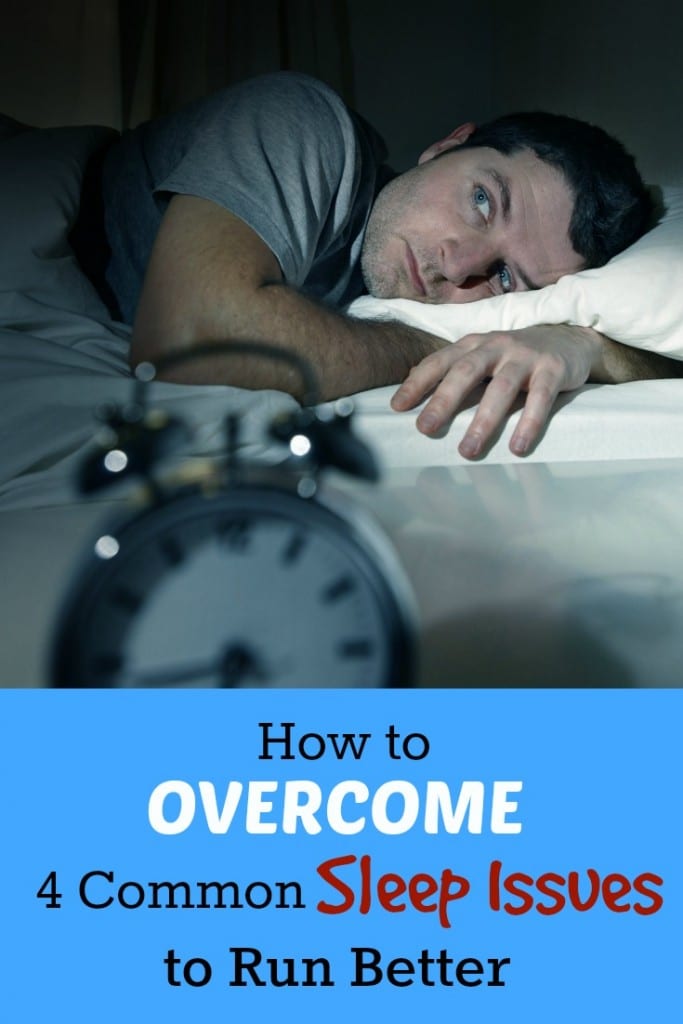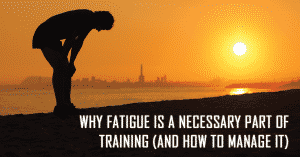 Sleep. Almost all runners need more of it, but very few are able to get the optimal number of hours every night. Running publications routinely publish articles on the importance of sleep, so it’s no surprise that runners understand the critical role sleep plays in the recovery process. Unfortunately, some runners simply can’t find the time to slumber 7-8 hours per night and still fit in all they need to do in one day. For these athletes, getting in a full night’s sleep may always be low on the priority list, regardless of how much they know it shouldn’t.
Sleep. Almost all runners need more of it, but very few are able to get the optimal number of hours every night. Running publications routinely publish articles on the importance of sleep, so it’s no surprise that runners understand the critical role sleep plays in the recovery process. Unfortunately, some runners simply can’t find the time to slumber 7-8 hours per night and still fit in all they need to do in one day. For these athletes, getting in a full night’s sleep may always be low on the priority list, regardless of how much they know it shouldn’t.
But what about the 40 million Americans, and by extension thousands of runners, that suffer from chronic sleep issues; the runners who understand the important role sleep plays in the recovery process and who diligently try to get in their 7-9 hours but can’t because of sleeping disorders? Take for example Bobby Curtis or Tera Moody, elite runners who suffer from insomnia despite taking extreme measures to find a cure and get the sleep they need. What can they do to improve their sleep quality, and is it possible running is the cause of their sleep-related issues?
In this article we’ll examine four common, and often overlooked, sleep issues that affect runners and offer some helpful suggestions should you be one of the unfortunate athletes who suffers from sleep issues despite your sincere attempts to get the rest you know you need.
Common sleep issues suffered by runners
Sleep apnea
Sleep apnea, characterized generally by abnormal pauses in breathing rhythm while sleeping, is most commonly seen in overweight, older men (mainly individuals who have thick necks, which narrows the airways when sleeping). However, recent research published in the journal Clinics in Sports Medicine suggests that even a thin neck (those commonly found on gaunt, healthy distance runners and women), can also be a risk factor for sleep apnea.
Simply speaking, a thin neck provides less room for air to pass through once the muscles relax during sleep. This paradoxical phenomenon may cause many runners with sleep issues to be misdiagnosed or for sleep apnea to be ignored as a possible cause for sleep issues all together.
What you can do
Potential cures for sleep apnea are more extensive than this article can cover. However, if you snore, find yourself constantly tired throughout the day, or think you may be suffering from sleep apnea, consult your doctor. Don’t be afraid to voice your concerns. Even medical professionals fall victim to categorizing certain conditions based on genetic or lifestyle factors.
High cortisol levels and increased body temperature
Running is supposed to make you tired, and it usually does the trick for most people who suffer from sleep issues. However, running too close to bed time can impair sleep, mainly due to increased corisol levels and body temperature.
Cortisol is a hormone produced by your adrenal glands that increases blood sugar levels, suppresses the immune system, and aids in fat, protein and carbohydrate metabolism. Cortisol is normally highest in the morning and then slowly lowers itself throughout the day. However, hard workouts elevate cortisol levels (and can keep them elevated for up to 9 hours post workout), which can wreak havoc on an athlete’s sleep cycle.
Likewise, running elevates your core body temperature, even if it’s cold outside or you’re not running particularly hard. It can take 4-6 hours for the body to cool back down to a normal temperature after running. This prolonged increase in body temperature will delay the transition to deeper sleeping patterns.
What you can do
- Try to schedule your run to finish at least three hours before going to bed, especially if you are the type of person who becomes more alert with exercise. The further away from bedtime you can run, the less likely you are to suffer from these issues.
- Develop a routine and stick with it, even on weekends. Go to bed at the same time every night and get up at the same time every morning. Set and maintain a sleep schedule. “Sleeping in” on the weekends will make it harder to wake up on Monday morning because it resets your sleep cycle.
- Likewise, develop a relaxing routine before bed. This may include a warm bath, light stretching, listening to soothing music, reading or other relaxing activities.
Low blood sugar
Low blood sugar levels, which is common in runners, may also lead to a lack of deep, consistent sleep. Simply speaking, when your blood sugar drops below a certain level, cortisol is released (see above) and the surge in adrenaline wakes you up feeling hungry.
In addition to disturbing your sleep, low blood sugar levels will keep your body in a catabolic state throughout the night instead of the anabolic process that is critical to repairing the specific running muscles you’ve used.
What you can do
- Don’t go to bed feeling hungry, but don’t eat a big, heavy meal right before bedtime either. Try eating some cottage cheese, which contains casein, a slow-digesting form of protein, or a drinking protein shake before bed.
- Try not to drink fluids at least two hours before bedtime as a full bladder can interfere with sleep.
- If you do get up during the night, do not expose yourself to bright light. Intense light can reset your internal clock and make it harder to get back to sleep.
Nutrition issues causing digestive and organ stress
In addition to not going to bed hungry, you should closely examine the quality of your nutrition and the foods you’re eating if you have trouble sleeping. Particularly, nutrition, and its effect on the liver, gall bladder, and large intestine could be making it difficult to fall asleep or stay asleep through the night.
The gall bladder, which is most active between the hours of 11pm and 1am, is responsible for digesting fats and is sensitive to caffeine. Therefore, eating too many bad fats or consuming caffeinated beverages can keep you awake during these hours, especially if you have existing gall bladder issues.
Moreover, the liver becomes most active during the hours of 1am to 3am, which may cause many runners to awaken from their restful sleep if it’s stressed too heavily. The liver has to detoxify cortisol and estrogen and process medications (such as sleep medicines or anti-inflammatories). Avoiding certain medications and spikes in cortisol (as discussed previously) is important if you want to stay asleep.
Finally, the large intestine is highly active from 5am – 7am, which can cause digestive issues from a food sensitivity, food allergy or harmful bacteria. One of the more common digestive issues for runners are gluten sensitivities caused by eating too many refined carbohydrates.
What you can do
- Maintain a healthy diet that is absent of unhealthy fats and be acutely aware of any food sensitivities or allergies you may have.
- Know the side effects of your medications, including anti-inflammatories.
- Avoid drinking alcohol close to bedtime. While it may initially sedate you, alcohol keeps your brain in light sleep – you have trouble getting to the deep sleep and REM sleep phases and your sleep is less efficient.
- In the late afternoon and evening, avoid caffeinated drinks because they act as stimulants. Caffeine sources include some soft drinks, coffee, chocolate, non-herbal teas, some pain relievers and diet drugs. Caffeine can stay in your system up to 14 hours.
How important is sleep the night before competition
Finally, another major issue for runners who suffer from insomnia is stressing about not sleeping, especially before races. This is obviously a viscous circle, so it’s important you try to relax about your sleep issues as much as you can. To help you relax about any possible sleep issues you may have before your next race, here’s some research that demonstrates the effect, or lack thereof, on sleep deprivation and racing performance:
Research has shown that sleep loss ranging from 16-24 hours does not impair performance during aerobic and anaerobic events. The adrenalin rush of competition appears to override any negative physical consequences of sleep deprivation. Therefore, if you miss several hours of sleep for a night or two before your race, your performance is not likely to be impacted unless you are particularly susceptible to sleep deprivation.
Do you suffer from insomnia or other sleep issues? Share your experiences and any tricks you have, I am sure your fellow runners would appreciate the tips.
A version of this post originally appeared at competitor.com





One Response
Thanks for the great information. I used to have severe sleep apnea and cured myself after 2 years of research, so I know how it used to affect my performance. It is possible that some of your readers have sleep apnea but just aren’t aware of it or want to admit it. I was the same way. The National Institutes of Health (NIH) stated that 90% of those who have sleep apnea are undiagnosed. – Jon Sumida (thesumidaway)